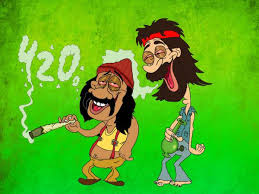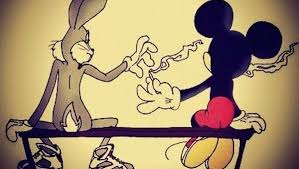https://www.washingtonpost.com/news/the-switch/wp/2015/08/12/governments-are-trying-to-rid-the-internet-of-illegal-drug-markets-theyre-losing/



August 12, 2015
The government's war against online drug sales isn't working, according to researchers at Carnegie Mellon University.
Despite law enforcement crackdowns, online drug black markets have matured into a resilient criminal industry that enables more than $100 million worth of worldwide sales a year, a new paper from researcher Kyle Soska and computer science professor Nicolas Christin reports.
The report is one of the most comprehensive looks yet at the burgeoning online drug market. Researchers collected data on 35 online marketplaces that were active on the "Dark Web" -- sites that require the anonymous browsing tool Tor to access and are much harder for law enforcement to track -- between 2013 until January of this year. They wrote a program to scrape the sites for data, including examining the prices that the drugs -- from marijuana to cocaine -- were being sold for. They also collected information on how much feedback sellers received from customers on their purchases. The data helped the researchers estimate trends and total sales.
The report was presented Wednesday at a Usenix Conference in Washington, D.C.
The researchers found that the industry's growth has slowed since the early days of Silk Road -- one of the first online drug markets and the target of an aggressive government investigation that resulted in a life sentence for the man convicted of running the site. But sales continue to grow, and the market has matured beyond being dominated by a single player, they said.
When the government closed Silk Road in fall of 2013, the online drug business just migrated to other sites, including Sheep Marketplace and Black Market Reloaded, according to the researchers. Those two sites closed not long afterward, causing "quite a bit of turmoil" in the online drug scene, they said. (Black Market Reloaded shuttered of its own accord, while Sheep users fell victim to an apparent scam.)
But another crop of sites eventually stepped in to fill the void, including Silk Road 2.0, Agora, Pandora and Evolution, and the market began to mature. When some of those sites suffered big scams or government take-downs, the researchers said, the market had stabilized enough that sellers could just jump to another site.
When Operation Onymous, a joint U.S. and European crackdown that resulted in 17 arrests, shut down Silk Road 2.0 and some smaller marketplaces in November of last year, for example, the researchers said there was an initial drop in total sales, but the market "immediately" rebounded as people moved to competing markets.
Illegal online drug sales have stabilized at between $300,000 to $500,000 a day, the researchers said.
Marijuana and ecstasy were the most popular drugs among black market users, according to the report, accounting for more than half of overall sales. The popularity of cocaine has fallen in recent years, while prescription drug sales climbed, the researchers said.

The report also found that the majority of vendors on the sites appeared to be small-time sellers. About 70 percent of them never sold more than $1,000 worth of products, and another 18 percent sold between $1,000 and $10,000. Just 2 percent managed to sell more than $100,000 worth of drugs.
The researchers also noted an increase in sellers' technical sophistication, possibly in response to the government crackdown. Almost all sellers now allow buyers to contact them using strong encryption that secures messages so only the sender and receiver can unlock them, an uptick from the two-thirds of sellers who offered such security during the original Silk Road era, according to the report.
Overall, the Carnegie Mellon researchers argued, their findings suggest that going after these markets is a cat-and-mouse game law enforcement may not be able to win.
"We suggest a re-evaluation of intervention policies against anonymous marketplaces," the wrote. "Given the high demand for the products being sold, it is not clear that take-downs will be effective; at least we have found no evidence they were."
Some research suggests that buying drugs online is safer than buying them from street dealers. One recent survey of 100,0000 drug users found that many believed that buying from online vendors reduces their risk of physical violence or ending up with a tainted product.
But it seems unlikely that the government will change tactics. "Those looking to follow in the footsteps of alleged cybercriminals should understand that we will return as many times as necessary to shut down noxious online criminal bazaars," Manhattan U.S. Attorney Preet Bharara said in a statement late last year after the government crackdown on Silk Road 2.0. "We don’t get tired.”
Correction: An earlier version of this post misspelled the last name of Nicolas Christin. It also said that just 2 percent managed to sell more than $1 million worth of drugs. That figure is actually $100,000. This version has been corrected.